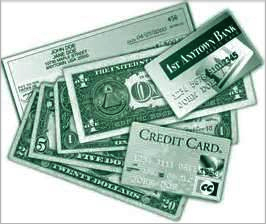Image attribution: FreeDigitalPhotos.net; standard royalty free license
Corporate stock dilution is a result that occurs when new shares of company stock are issued. More specifically, when new corporate shares are issued the price of total shares decline to equal the total value of shares before new shares were issued. For example, suppose ABC Company has 100,000 common shares valued at $10.00 per share. If ABC Company issues 100,000 more shares, the value of total shares will remain the same, but the price will drop to $5.00 per share in order for this to happen.
Stock dilution in terms of shareholder wealth can be measured by calculating the earnings per share and diluted earnings per share. Earnings per share is calculated by dividing total earnings after dividends are paid by the total number of shares outstanding. Diluted earnings per share is essentially calculated in the same way, but when convertible securities are added, the EPS goes down. Furthermore, earnings per share measures the amount of a company's earnings that are available for each share, whereas diluted earnings per share measures the value of shares if outstanding stock options and convertible securities are converted into shares. In the case of convertible securities such as debentures, a company may be trying to raise new capital to finance business projects according to the Securities and Exchange Commission.
Forward stock splits are an additional cause of stock dilution. In the case of forward stock splits, the existing amount of shares are split into more shares. For example, in a 2:1 stock split, two shares replace an existing old share. According to a study performed by economics faculty at the University of Indonesia, a noted affect of forward stock splits is an increase in share trading volume prior to the stock split. Even though the mathematical affect of stock splits on actual worth at the time of the split is naught, the announcement of the stock split itself may affect market psychology. For example, the stock split and stock dilution may be seen as a good thing thereby increasing share activity.
Market psychology surrounding corporate finance is dynamic, but a reason stock splits may be seen as a positive indicator is strong financial growth according to StreetInsider. Moreover, a company's stock price and price per share relative to earnings may rise too high in the wake of strong revenue and earnings growth making it difficult to maximize capital investment. In such case, stock dilution can be financially positive because it reflects growth and allows the business to obtain capital investment that may have otherwise been left out due to high share prices. Thus, in the case of a successful corporation, even if the price of shares go down after new shares are issued, they can rise again in successive stock trading after being diluted; this is quite possibly a "bifurcated" aim of lowering the price per share.
Another reason market psychology can be affected by stock dilution is the affect on corporate financial statistics. To illustrate, suppose a company has an overly inflated stock price and P/E ratio; if the company issues new stock, the price to earnings ratio is affected. Furthermore, since the PE ratio is used as a gauge of corporate performance, an increase in shares outstanding leads to an increase in P/E if it is followed by a share price rise. In such case, the company may subsequently appear to have improved investor confidence because the P/E ratio becomes inflated by a rise in stock price following the dilution.


















 :.
:.